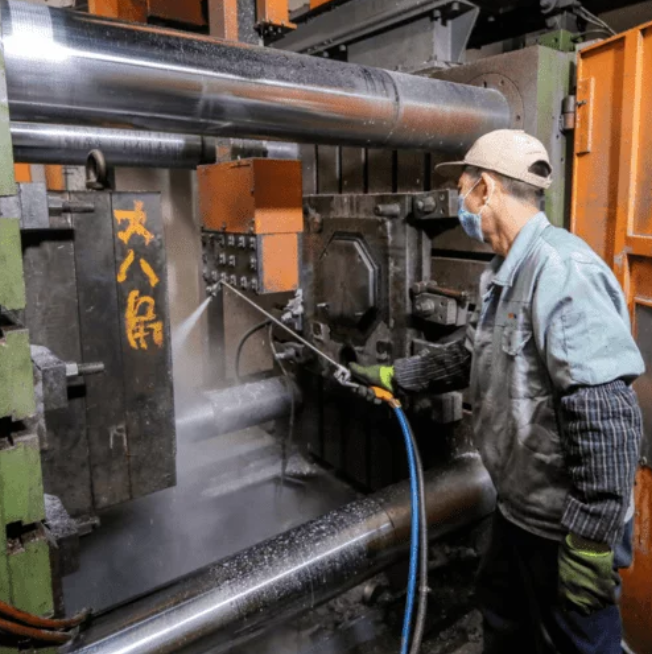Hot chamber die casting is a highly efficient manufacturing process that allows for the rapid production of large quantities of precision parts. This article will explore the key features and advantages of hot chamber die casting, as well as its applications and potential limitations.
Hot chamber die casting, also known as gooseneck casting or high-pressure die casting, is a process used to produce intricate and complex parts out of non-ferrous metals, such as zinc, lead, magnesium, and copper alloys. This method is particularly suitable for high-volume production, as it offers quick cycle times and excellent repeatability.
The process involves injecting molten metal under high pressure into a steel mold, also known as a die. The mold is typically made in two halves, which are precisely machined to form the desired shape of the part. Before the injection of molten metal, the die is preheated to ensure proper flow and prevent premature solidification. This preheating is why it is called a \”hot chamber\” die casting process.
One of the main advantages of hot chamber die casting is its high production speed. The entire process, from injecting the molten metal into the die to solidifying the part, takes only a few seconds. This rapid production capability makes hot chamber die casting ideal for industries that require a large number of parts in a short amount of time, such as automotive, electronics, and consumer goods.
Another advantage of hot chamber die casting is its ability to produce complex and highly detailed parts with excellent dimensional accuracy. The high pressure used in the process ensures that the molten metal fills every intricate detail of the mold, resulting in parts with tight tolerances and smooth surface finishes. This makes hot chamber die casting suitable for applications where precision and aesthetics are critical.
Hot chamber die casting also offers cost advantages over other manufacturing processes. The high production speed and repeatability of the process help reduce labor costs and increase overall efficiency. Additionally, the scrap generated during the die casting process can be recycled, minimizing material waste and further reducing costs.
The versatility of hot chamber die casting is another reason for its popularity. The process can be used to produce a wide range of parts, from small and intricate components to larger and more complex structures. This flexibility makes hot chamber die casting suitable for various industries and applications, such as automotive engine components, electrical connectors, and household appliances.

However, hot chamber die casting does have some limitations. Firstly, it is only suitable for non-ferrous metals, limiting its application to specific materials. Secondly, the process may not be suitable for parts that require extremely high strength or have special material requirements, as the rapid cooling of the molten metal may affect the material properties. In such cases, alternative manufacturing processes like cold chamber die casting or other metal forming methods may be more appropriate.
In conclusion, hot chamber die casting is an efficient and cost-effective manufacturing process for high-volume production. Its ability to produce complex and precise parts with short cycle times makes it highly suitable for industries that require large quantities of parts in a short amount of time. While it has some limitations, hot chamber die casting remains a popular choice due to its versatility, speed, and cost advantages.
-

- Thixomolding parts & components cell phone middle board processed
-

- Piezas de UAV de fundición a presión de tixomoldeo de aleación de magnesio
-

- Bicicleta Freehub 12/14/16 pulgadas Bicicleta para niños Bicicletas Low Rider Aleación de aluminio y magnesio Bicicleta para niños 3-8 años En stock
-

- Componentes de tixomoldeo de aleación de magnesio
-

- Piezas de fundición de magnesio Columna de dirección
-

- Bicicletas para niños, bicicletas para niños de 3 a 16 años, niño/OEM, bicicleta para niños, bicicletas de montaña para niños 2022

 0086-750-5616188
0086-750-5616188 +86 13392089688
+86 13392089688 sales@zhongmei-tech.com
sales@zhongmei-tech.com







